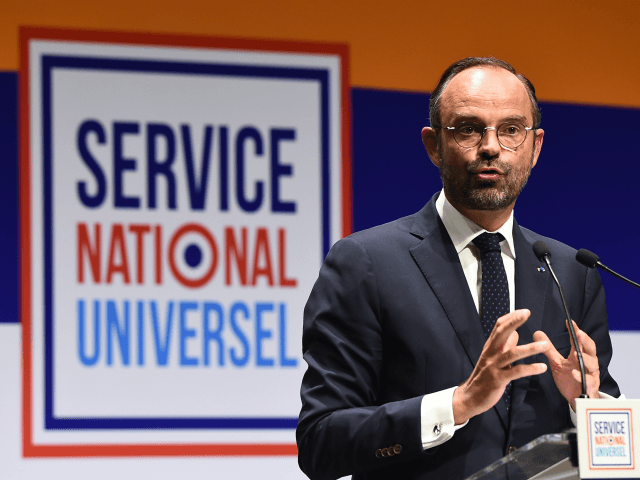The French government under President Emmanuel Macron is introducing national service for 16-year-olds across the country to “socially mix” youths and promote common values.
A pilot project is set to begin in the autumn of 2019 with a small sample group of 16-year-olds. By 2026, the programme will encompass every 16-year-old in the country, totalling some 700,000 young people, Le Telegramme reports.
The programme was originally mooted during the election campaign and revived in a watered-down version — without actual military service requirement — in June 2018. The latest comments from Macron’s government amid a major reshuffle suggests the project actually going ahead could be closer than ever.
Minister of National Education Jean-Michel Blanquer described two phases of the national service programme. The first would occur at age 16, would be compulsory, and would take place over a month’s time during summer holidays. Fifteen days would be allocated to “integration” and “social mixing” would be encouraged in shared collective accommodations.
The next 15 days would see 16-year-olds break off into small groups for more personalised work.
He also described a second phase which would occur before the age of 24 in which youths would be given the opportunity to spend anywhere from three to twelve months in more specialised fields such as national defence, ecological work, assistance to elderly and disabled people, or cultural positions.
According to General Daniel Ménaouine, who is chairman of the working group behind the project, they are still developing the programme and he will present a report in November.
Gabriel Attal, 29, who was appointed Secretary of State to the Minister of National Education on Tuesday and will head the project, said: “This is a fundamental structural reform for society. When we talk to a lot of young people today, they all tell us they need to get involved, but many do not know how to do it. For me, the National Service will give them a universal taste and pathway of engagement.”
The national service project aims to unite French youth and give a “feeling of national unity around common values”, according to the French government.
The programme could also combat the rise of parallel societies, which are particularly prevalent in the migrant-heavy suburbs of major cities, according to academics like Professor Gilles Kepel who described to Breitbart London the disconnect in areas like the suburbs of Paris.
The emergence of parallel societies within Western nations, especially those linked to radical Islam, have been seen not only in France but also in Sweden, Austria, and Denmark.
While some, like Professor Kepel, have advocated better integration policies, others, like German political scientist Ulrike Guérot, have proposed the opposite saying that migrants should just be given their own towns or cities in order to live according to their own values.

COMMENTS
Please let us know if you're having issues with commenting.